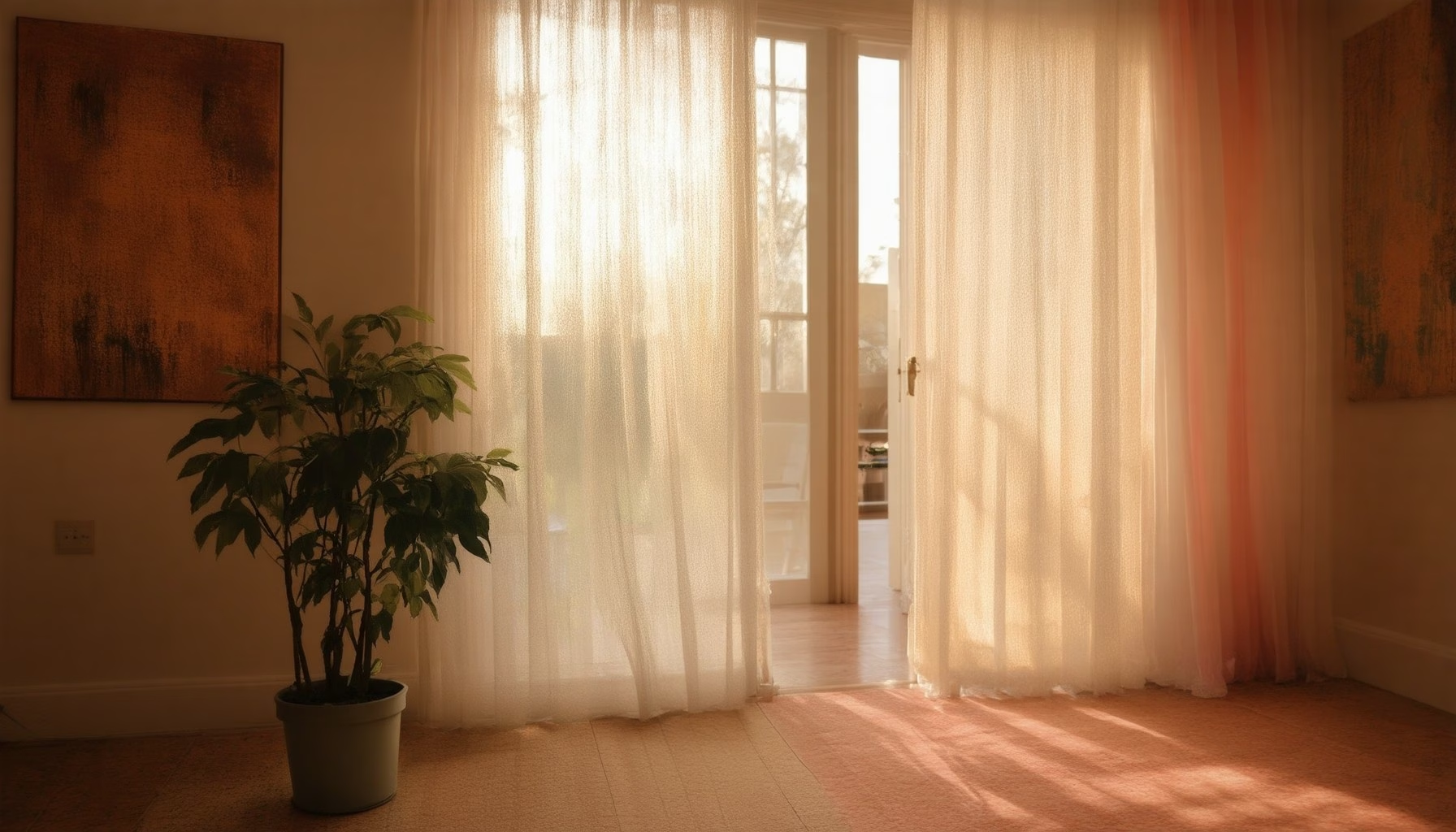Key Takeaways
- Understanding tenant quiet enjoyment is crucial for both tenants and landlords, ensuring peaceful living conditions free from interference.
- The tenant quiet enjoyment clause protects tenants’ rights, allowing them to enjoy their property without undue disturbances.
- Common violations of quiet enjoyment include unauthorized entry by landlords, excessive noise, and failure to address necessary repairs.
- Tenants can take legal action for breaches of quiet enjoyment, documenting violations and seeking remedies under the tenant quiet enjoyment law.
- Commercial tenants face unique challenges regarding quiet enjoyment, necessitating a clear understanding of their lease agreements and local laws.
Understanding the concept of tenant quiet enjoyment is essential for both tenants and landlords, as it encompasses the legal rights and obligations that govern residential and commercial properties. This article delves into the intricacies of the tenant quiet enjoyment clause, exploring its significance in safeguarding a tenant’s right to peace and privacy within their living or working space. We will clarify the legal meaning of quiet enjoyment, distinguish it from nuisance claims, and outline what constitutes a breach of quiet enjoyment in various jurisdictions, including New York and California. Furthermore, we will discuss the steps tenants can take when facing a landlord quiet enjoyment violation and the unique considerations for commercial tenant quiet enjoyment. By the end of this article, you will have a comprehensive understanding of the tenant quiet enjoyment law and the protections it affords, empowering you to navigate your rights and responsibilities effectively.
What is the legal meaning of quiet enjoyment?
The legal meaning of quiet enjoyment refers to a tenant’s right to possess and use their rented property without interference from the landlord or other parties. This concept is embedded in the tenant quiet enjoyment clause, which is a fundamental aspect of tenancy agreements. It ensures that tenants can enjoy their living space peacefully, free from disturbances that could disrupt their daily life.
Understanding the Tenant Quiet Enjoyment Clause
The tenant quiet enjoyment clause is a critical component of rental agreements, explicitly stating that tenants are entitled to the undisturbed use of their property. This clause protects tenants from various forms of interference, including excessive noise, harassment, or unauthorized entry by the landlord. In many jurisdictions, such as California, the tenant quiet enjoyment law is designed to uphold these rights, ensuring that tenants can live comfortably in their homes.
Understanding this clause is essential for both tenants and landlords. For tenants, it clarifies their rights and helps them recognize when those rights are being violated. For landlords, it emphasizes the importance of maintaining a respectful and lawful relationship with their tenants, thereby preventing potential disputes.
The Importance of Tenant Rights in Quiet Enjoyment
Tenant rights regarding quiet enjoyment are vital for fostering a healthy rental environment. These rights not only protect tenants’ peace but also contribute to their overall well-being. When tenants feel secure in their right to quiet enjoyment, they are more likely to maintain their lease and develop a positive relationship with their landlord.
Moreover, understanding these rights can empower tenants to take action if they experience a landlord quiet enjoyment violation. Whether it involves excessive noise from neighbors or unwarranted landlord visits, tenants can assert their rights and seek remedies through legal channels if necessary. This knowledge is crucial for ensuring that tenants can enjoy their property without undue stress or interference.

What is the difference between quiet enjoyment and nuisance?
Understanding the distinction between tenant quiet enjoyment and nuisance is crucial for both tenants and landlords. While both concepts relate to the use and enjoyment of rental property, they address different legal issues and tenant rights. The tenant quiet enjoyment clause ensures that tenants can live in their rented space without undue interference, while nuisance claims focus on disturbances that disrupt a tenant’s ability to enjoy their property.
Distinguishing Between Quiet Enjoyment and Nuisance Claims
The tenant quiet enjoyment clause is a fundamental aspect of rental agreements, granting tenants the right to use their property without interference from landlords or other parties. In contrast, a nuisance refers to actions or conditions that significantly disrupt a tenant’s peaceful enjoyment of their home. For instance, excessive noise from neighboring units or persistent harassment from a landlord may constitute a nuisance, potentially leading to legal action.
To differentiate between the two, consider the following:
- Quiet Enjoyment: This legal principle protects tenants from interference, ensuring they can enjoy their living space free from unwarranted disruptions.
- Nuisance: This involves specific actions that create an unreasonable disturbance, affecting a tenant’s ability to use their property comfortably.
Understanding these distinctions can help tenants assert their rights effectively and navigate potential disputes with landlords.
Legal Implications of Nuisance on Tenant Quiet Enjoyment
Nuisance claims can have significant legal implications for tenant quiet enjoyment. If a tenant can demonstrate that a nuisance exists, they may have grounds to pursue remedies under the tenant quiet enjoyment law. This could include seeking damages or even terminating their lease if the nuisance is severe enough to breach the landlord quiet enjoyment clause.
Common examples of nuisances that may violate a tenant’s right to quiet enjoyment include:
- Excessive noise from construction or parties.
- Unresolved pest infestations.
- Inadequate maintenance leading to unsafe living conditions.
Tenants facing such issues should document the disturbances and communicate with their landlords. If the situation does not improve, they may need to explore legal options, including filing a complaint or seeking legal advice to protect their tenants quiet enjoyment of the property.
What does the term quiet enjoyment provide the tenant with?
The concept of tenant quiet enjoyment is a fundamental right that ensures tenants can use and enjoy their rented property without undue interference. This legal principle is embedded in the tenant quiet enjoyment clause found in most lease agreements, which protects tenants from disturbances that could disrupt their living conditions. Understanding this right is crucial for both tenants and landlords, as it establishes clear expectations regarding the use of the property.
Tenant’s Right to Quiet Enjoyment of Property Explained
Under the tenant quiet enjoyment law, tenants are entitled to a peaceful living environment. This right encompasses several aspects:
- Freedom from Disruption: Tenants should not face unreasonable noise or disturbances from landlords or other tenants, allowing them to enjoy their home fully.
- Privacy: Tenants have the right to privacy in their rented space, meaning landlords cannot enter the property without proper notice or consent.
- Use of Amenities: Tenants should have access to all amenities promised in the lease, ensuring they can fully utilize the property as intended.
In essence, the tenants quiet enjoyment of the property is a safeguard against landlord actions that could infringe upon a tenant’s ability to live comfortably and peacefully.
The Benefits of the Tenant Quiet Enjoyment Law
The tenancy quiet enjoyment principle offers several benefits for tenants:
- Legal Protection: Tenants can seek legal recourse if their right to quiet enjoyment is violated, providing a mechanism for addressing grievances.
- Enhanced Living Conditions: By ensuring a peaceful environment, tenants can enjoy a higher quality of life, which can lead to better mental and emotional well-being.
- Encouragement of Responsible Landlord Practices: Landlords are motivated to maintain their properties and respect tenant rights, fostering a more positive rental experience.
Understanding these benefits reinforces the importance of the landlord tenant quiet enjoyment relationship, where both parties must adhere to the terms set forth in the lease agreement.
What constitutes a breach of quiet enjoyment in New York?
In New York, a breach of the tenant quiet enjoyment clause occurs when a landlord interferes with a tenant’s right to peacefully enjoy their rented property. This legal principle is rooted in the tenant quiet enjoyment law, which ensures that tenants can live in their homes without undue disturbances. Understanding what constitutes a breach is crucial for tenants seeking to protect their rights and maintain their quality of life.
Defining Breach of Quiet Enjoyment in New York
A breach of quiet enjoyment can manifest in various ways, including excessive noise, harassment, or failure to address significant maintenance issues that affect a tenant’s living conditions. The landlord’s actions or inactions must significantly disrupt the tenant’s quiet enjoyment of the property. For instance, if a landlord frequently enters the unit without proper notice or allows disruptive construction work to occur without prior communication, these could be considered landlord quiet enjoyment violations. Tenants are entitled to a peaceful living environment, and any infringement on this right can lead to legal recourse.
Common Examples of Landlord Quiet Enjoyment Violations
- Unauthorized Entry: A landlord entering a tenant’s unit without proper notice or consent can violate the tenant’s right to quiet enjoyment.
- Excessive Noise: If a landlord permits loud activities or construction that disrupts a tenant’s peace, this may constitute a breach.
- Failure to Address Repairs: Neglecting necessary repairs that affect the habitability of the property can infringe on a tenant’s quiet enjoyment.
- Harassment: Any form of intimidation or harassment by the landlord towards the tenant can be seen as a violation of the tenant quiet enjoyment clause.
For more information on tenant rights and protections, you can visit Understanding Legal Tenant Rights. Additionally, if you’re facing issues related to your commercial lease, check out Commercial Lease Rights for further guidance.

Suing Landlord for Breach of Quiet Enjoyment
When a landlord violates the tenant quiet enjoyment clause, tenants have the right to take legal action. Understanding the steps involved in suing for breach of quiet enjoyment is crucial for protecting your rights and ensuring a peaceful living environment. This section outlines the necessary steps to take when pursuing a claim against your landlord.
Steps to Take When Suing for Breach of Quiet Enjoyment
- Document the Violation: Keep detailed records of any incidents that disrupt your tenants quiet enjoyment of the property. This includes dates, times, and descriptions of the disturbances, as well as any communication with your landlord regarding the issue.
- Review Your Lease Agreement: Familiarize yourself with the landlord quiet enjoyment clause in your lease. This clause typically outlines your rights and the landlord’s obligations regarding your living conditions.
- Notify Your Landlord: Before taking legal action, formally notify your landlord of the breach. Provide them with an opportunity to resolve the issue, as this can strengthen your case if you need to proceed with a lawsuit.
- Seek Legal Advice: Consult with a legal professional who specializes in tenant rights. They can provide guidance on the best course of action and help you understand the tenant quiet enjoyment law in your state.
- File a Lawsuit: If the issue remains unresolved, you may file a lawsuit against your landlord. Be prepared to present your documentation and any evidence of the breach in court.
Understanding Damages for Breach of Quiet Enjoyment
When pursuing a lawsuit for breach of quiet enjoyment, it’s essential to understand the types of damages you may be entitled to. These can include:
- Compensatory Damages: These are intended to compensate you for any financial losses incurred due to the breach, such as costs associated with finding alternative housing.
- Punitive Damages: In some cases, if the landlord’s actions are found to be particularly egregious, the court may award punitive damages to deter similar behavior in the future.
- Emotional Distress: If the breach has caused significant emotional distress, you may also seek damages for this impact.
Understanding your rights under the tenancy act quiet enjoyment is vital for successfully navigating this process. For more information on tenant rights, visit Understanding Legal Tenant Rights.
Tenant Rights and Obligations Regarding Quiet Enjoyment
The concept of tenant quiet enjoyment is fundamental to rental agreements, ensuring that tenants can live in their homes without undue interference. Understanding the rights and obligations surrounding this clause is essential for both tenants and landlords. This section will explore the role of the landlord in ensuring tenant quiet enjoyment and the responsibilities that tenants must uphold under the tenancy act quiet enjoyment.
The Role of the Landlord in Ensuring Tenant Quiet Enjoyment
Landlords have a legal obligation to uphold the tenant quiet enjoyment clause, which is designed to protect tenants from disturbances that could disrupt their peaceful living conditions. This includes ensuring that the property is free from excessive noise, harassment, or any form of interference from other tenants or the landlord themselves. A landlord quiet enjoyment violation can occur if the landlord fails to maintain the property or allows disruptive behavior from other tenants.
In many jurisdictions, including California, landlords must provide notice before entering a tenant’s unit, except in emergencies. This right to privacy is a critical aspect of the tenant’s right to quiet enjoyment of property. If a landlord repeatedly disregards these obligations, tenants may have grounds to pursue legal action for breach of quiet enjoyment.
Tenant Responsibilities Under the Tenancy Act Quiet Enjoyment
While tenants are entitled to quiet enjoyment, they also have responsibilities that must be met to maintain this right. Tenants must adhere to the terms of their lease, which often includes maintaining a reasonable level of noise and not engaging in activities that could disturb neighbors. For instance, excessive noise from parties or loud music can lead to complaints and potential legal issues.
Moreover, tenants should report any disturbances or violations of their quiet enjoyment rights promptly. This proactive approach not only helps in resolving issues but also strengthens their position should they need to take legal action against a landlord for failing to uphold their obligations. Understanding what constitutes a breach of quiet enjoyment is crucial for tenants to protect their rights effectively.
For more information on tenant rights, you can visit this resource.
Commercial Tenant Quiet Enjoyment Considerations
The concept of tenant quiet enjoyment is crucial for commercial tenants, just as it is for residential renters. Understanding the nuances of the tenant quiet enjoyment clause in commercial leases can significantly impact a business’s operations and overall success. This clause typically guarantees that tenants can use their leased space without undue interference from landlords or other parties. However, the specifics can vary widely based on the lease agreement and local laws.
Unique Aspects of Commercial Tenant Quiet Enjoyment
Commercial tenants often face unique challenges regarding their right to quiet enjoyment. Unlike residential leases, commercial leases may not always explicitly outline the tenant’s right to quiet enjoyment of property. Instead, these rights may be implied based on the nature of the business and the lease terms. For instance, a restaurant may require a different level of quiet enjoyment compared to a retail store, particularly concerning noise levels and foot traffic.
Additionally, commercial tenants should be aware of the landlord quiet enjoyment violation scenarios that could arise. If a landlord fails to maintain the property or allows disruptive activities nearby, it could constitute a breach of the tenant quiet enjoyment law. Understanding these nuances is essential for tenants to protect their rights and ensure a conducive business environment.
Legal Protections for Commercial Tenants Regarding Quiet Enjoyment
Legal protections for commercial tenants regarding tenancy quiet enjoyment can vary by state. For example, in California, the tenant right to quiet enjoyment is well-established, providing tenants with a legal framework to address violations. Similarly, in British Columbia, the bc tenancy quiet enjoyment laws ensure that commercial tenants can operate without unreasonable disturbances.
Tenants should familiarize themselves with their local laws and the specific terms of their lease agreements to fully understand their rights. In cases of disputes, tenants may need to seek legal advice or consider filing a complaint if they believe their tenant quiet enjoyment clause has been violated. Resources such as housing rights for tenants can provide valuable guidance on navigating these issues.




